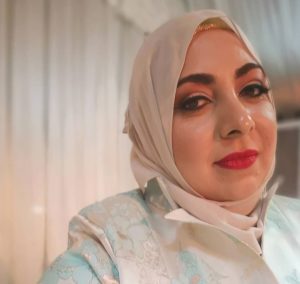 By Naadiya Adams
By Naadiya Adams
Seasoned journalist Khadija Patel has been elected as chair of the world’s oldest media watchdog. The prestigious position of chair of the International Press Institute‘s global board makes Patel the 35th member to warm up to the seat.
Patel was elected by the IPI’s board members during the organization’s World Congress and General Assembly held in Vienna, Austria. Patel has served on the board for three years now but has just recently been elected as chair.
The IPI consists of journalists, media owners and stakeholders from around the world, creating a global media community that aims to uphold press freedom throughout the world’s media houses.
“My responsibility really as chair is to work very closely with the secretariat team in Vienna to make sure that the office is running smoothly but also to provide strategic guidance to the secretariat to ensure that the team is working well and responding to press freedom emergencies as they occur but also that we are working proactively, this is an extraordinary time for world media,” said Patel in an interview with Radio Islam.
Patel says the onus also lies on the IPI to continuously transform itself to best serve the community.
She says, while the role of chairing a board is very different from her former roles as journalist, it is a great opportunity to diversify her experience; especially since the IPI is a truly global institution.
The former editor-in-chief of the Mail & Guardian newspaper is currently the head of programmes for the International Fund for Public Interest Media, an organization geared towards media solutions across the globe.
“Basically there is a funding emergency for the world’s media, everywhere from South Africa to Columbia, to Albania to Nepal. Right across the world media is struggling particularly public interest, independent media is struggling, there is a funding crisis, business models have basically crumbled. So yes, I’m working on strategies with the International Fund for Public Interest Media to ensure media viability,”
While Patel seeks to uphold the world’s media community, she also says the state of South African media is at a highly sensitive time as the pandemic has left over 100 journalists without jobs. Many media houses and publications closed down as the South African business environment has been a difficult one.
“It is a very very sensitive time, it is also a politically charged time, there continues to be an onslaught on the work of journalists and feeds from the kind of environment that was sowed by former US President Donald Trump who sought to discredit journalists completely,” explains Patel.
She says it’s a very difficult time for journalists as the narrative is being adopted in South Africa and around the world as well.







0 Comments